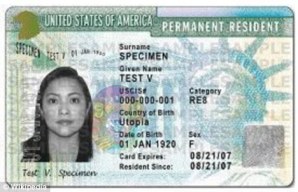“A crise vai passar,” the crisis will pass. Those are the words I hear over and over in the Brazilian and other immigrant communities, and it is true that this pandemic will pass. However, during the time of COVID-19, there have been many changes in immigration that affect the immigrant community, and these changes are likely to last longer than the pandemic.
 First, all USCIS offices are closed until at least June 4, so no interviews for greencards or naturalization. The embassies and consulatesare closed as well, so no one is receiving a visa. Immigration courts for non-detained cases are closed, too, until June 12, which for some immigrants is great news, but for others means they will wait months or even years for their hearing. Everything will be rescheduled, of course. But until then, everything is on hold.
First, all USCIS offices are closed until at least June 4, so no interviews for greencards or naturalization. The embassies and consulatesare closed as well, so no one is receiving a visa. Immigration courts for non-detained cases are closed, too, until June 12, which for some immigrants is great news, but for others means they will wait months or even years for their hearing. Everything will be rescheduled, of course. But until then, everything is on hold.
Second, USCIS is now requiring the form I-944 Declaration of Self Sufficiency for all adjustments. This is a huge change. Before, a sponsor needed only provide an I-864 Affidavit of Support for their family members. Now, with the I-944, USCIS added a massive burden of time and documentation, requiring tax transcripts for household members, health insurance policies, proof of current income, prior employment history, a credit score and report for the immigrant, proof of English proficiency, education, and more to prove the immigrant will not become a “public charge.”
Third, the Trump Administration is using the COVID-19 pandemic to slow and even stop legal immigration. The April 22 Presidential Proclamation is just the start. Currently, it only affects immigrants overseas who don’t have an immigrant visa. The Proclamation is clearly not about protecting American workers; how does banning parents and siblings of U.S. citizens and the spouses and children of Lawful Permanent Residents save jobs? Remember also that President Trump said he is going to issue additional measures after 60 days. And he certainly will.
But now is not the time to be afraid. Now is the time to be steadfast, keep filing applications, and work intelligently. Even though USCIS offices are closed, USCIS Service Centers still operating, issuing work cards and processing cases. For immigrants who were anxious for their day in Court, Motions can be filed to move rescheduled hearings to an earlier date. Immigrants with weak cases have gained time to build a stronger case, or hope for a favorable change in the law or even a new, kinder President. Regarding the I-944, our office is already filing these, and it is a good time to do so. USCIS officers are still learning how to adjudicate these forms, so they are likely to not judge too harshly, and early applicants will be better able to argue their case. And for the Proclamation, being bold will pay dividends. With the Trump Administration looking to ban additional classes of immigrants and nonimmigrants over the next few months, the sooner applications are filed, the better.
In this time of change and uncertainty, our team is here to help. We are still scheduling consultations by Whatsapp, Facetime, Skype, and phone. And once our office is allowed to reopen, we can’t wait to see our current and future clients again and represent you in your immigration journey.
If you need legal advice, or would like to review your immigration options, please contact our office at (610) 664-6271 or visit our website to schedule a consultation.
The information provided on this website does not, and is not intended to, constitute legal advice; instead, all information, content, and materials available on this site are for general informational purposes only. Information on this website may not constitute the most up-to-date legal or other information. Readers of this blog should contact our office or their own attorney to obtain advice with respect to any particular legal matter. No reader, user, or browser of this site should act or refrain from acting on the basis of information on this site without first seeking legal advice from counsel in the relevant jurisdiction. Only your individual attorney can provide assurances that the information contained herein – and your interpretation of it – is applicable or appropriate to your particular situation. Use of, and access to, this website or any of the links or resources contained within the site do not create an attorney-client relationship between the reader, user, or browser and the law firm of Hogan & Vandenberg or its employees.

 First, an experienced and trustworthy immigration lawyer might be able to figure out a way to get you something better than DACA. Maybe you or a DACA you know has been a victim of crime, or trafficking. Or maybe they qualify for Amnesty through a parent or family member. If you just filled out DACA forms, you don’t know. Because DACA appears to be coming to an end, now is the time. To get an idea,
First, an experienced and trustworthy immigration lawyer might be able to figure out a way to get you something better than DACA. Maybe you or a DACA you know has been a victim of crime, or trafficking. Or maybe they qualify for Amnesty through a parent or family member. If you just filled out DACA forms, you don’t know. Because DACA appears to be coming to an end, now is the time. To get an idea,  ol (don’t do it), that they realize they have options out there (everyone does, some more, some less), and reminding them that if Immigration Law has one maxim, it’s this: be here. As long as you are in the United States, you have options. And everyone DACA has been here for at least 10 years, so they know what it takes to make sure they are here when we get a
ol (don’t do it), that they realize they have options out there (everyone does, some more, some less), and reminding them that if Immigration Law has one maxim, it’s this: be here. As long as you are in the United States, you have options. And everyone DACA has been here for at least 10 years, so they know what it takes to make sure they are here when we get a  relationships has changed. Also, no one knows exactly what President Trump will do about undocumented immigrants after he is
relationships has changed. Also, no one knows exactly what President Trump will do about undocumented immigrants after he is 

 in the United States – I’m thinking immigrants with work visas, or greencards, or you are petitioning for a relative who is overseas – you should be OK.
in the United States – I’m thinking immigrants with work visas, or greencards, or you are petitioning for a relative who is overseas – you should be OK.

